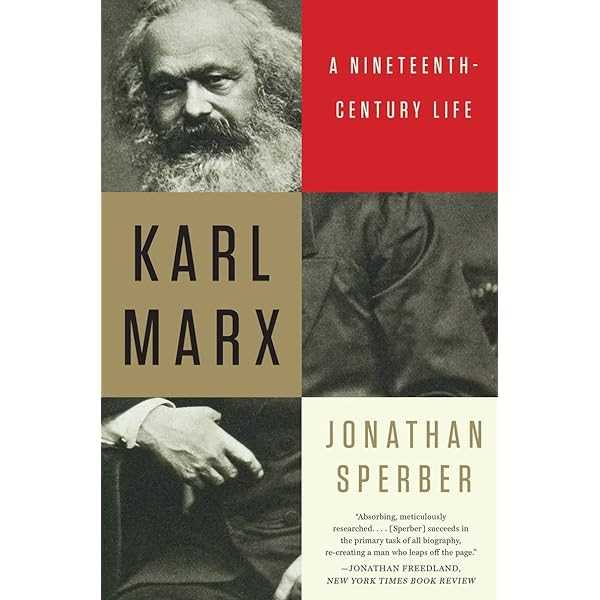Karl Marx: Books, Theories, and Impact

Karl Marx was a German philosopher, economist, and political theorist who is best known for his influential works on socialism and communism. His writings have had a profound impact on the development of social and economic theories, and his ideas continue to shape political discourse and movements to this day.
Marx’s most famous works include “The Communist Manifesto” and “Das Kapital.” These books outline his theories on class struggle, capitalism, and the potential for a socialist revolution. In “The Communist Manifesto,” Marx and his collaborator Friedrich Engels argue that history is driven by class conflict, and that the working class, or proletariat, will eventually rise up against the bourgeoisie, or capitalist class, leading to the establishment of a classless society.
Marx’s theories have had a significant impact on a wide range of disciplines, including economics, sociology, political science, and philosophy. His ideas have been both praised and criticized, and have inspired numerous political movements and revolutions around the world. Marxist thought has influenced the development of socialism and communism as political ideologies, and has shaped the policies and actions of governments and political parties.
Marx’s legacy continues to be debated and interpreted by scholars and activists, with ongoing discussions about the relevance and applicability of his theories in the modern world. While some argue that Marx’s ideas are outdated or flawed, others maintain that his analysis of capitalism and class struggle remains relevant and provides valuable insights into contemporary social and economic issues.
Early Life and Education
Karl Marx was born on May 5, 1818, in Trier, Germany. He came from a middle-class family, with his father working as a lawyer. Marx’s early life was marked by tragedy, as his mother passed away when he was only six years old.
Marx excelled in his studies and showed a keen interest in philosophy and literature from a young age. He attended the University of Bonn to study law but quickly became disenchanted with the subject. He transferred to the University of Berlin, where he focused on philosophy and history.
During his time in Berlin, Marx was exposed to the works of influential thinkers such as Georg Wilhelm Friedrich Hegel and Ludwig Feuerbach. These philosophers greatly influenced Marx’s intellectual development and laid the foundation for his later theories.
Marx’s early life and education played a crucial role in shaping his worldview and laying the groundwork for his later theories. His exposure to philosophy and his experiences as a journalist and political activist provided him with the tools and insights necessary to develop his groundbreaking ideas on economics, politics, and society.
The Communist Manifesto
The Communist Manifesto, written by Karl Marx and Friedrich Engels, was published in 1848. It is a political pamphlet that outlines the principles of communism and serves as a call to action for the working class.
In the Manifesto, Marx and Engels outline the goals of the Communist Party, which include the abolition of private property, the centralization of production in the hands of the state, and the establishment of a classless society. They argue that capitalism is inherently exploitative and that only through the overthrow of the bourgeoisie can true equality be achieved.
The Communist Manifesto also discusses the historical development of communism and its relationship to other socialist movements. It criticizes other socialist and communist parties for their failure to fully embrace the principles of communism and calls for the formation of an international working-class movement.
The Manifesto concludes with a rallying cry for the proletariat to unite and overthrow the bourgeoisie. Marx and Engels argue that the working class has nothing to lose but their chains and that their emancipation will lead to the liberation of all of humanity.
The Communist Manifesto has had a profound impact on history and continues to be studied and debated today. It has inspired numerous revolutions and socialist movements around the world. While some of its predictions and prescriptions have been criticized, its analysis of class struggle and the inherent contradictions of capitalism remains influential.
| Key Points | Details |
|---|---|
| Author(s) | Karl Marx and Friedrich Engels |
| Publication Year | 1848 |
| Main Ideas | Class struggle, abolition of private property, centralization of production, establishment of a classless society |
| Impact | Inspired revolutions and socialist movements, continues to be studied and debated |
Das Kapital
Content and Structure
“Das Kapital” is a dense and complex work that delves into the capitalist mode of production and the exploitation of labor. Marx intended to provide a comprehensive analysis of the capitalist system and its inherent contradictions. The book is divided into three volumes, each focusing on different aspects of capitalism.
The first volume, published in 1867, examines the process of capitalist production, including the concept of surplus value and the exploitation of labor. Marx analyzes the relationship between workers and capitalists, arguing that capitalists profit from the surplus value created by the labor of workers.
The second volume, published posthumously in 1885, explores the circulation of capital and the role of money in the capitalist economy. Marx investigates how capital is transformed and expanded through various economic transactions, such as buying and selling commodities.
Influence and Criticism
“Das Kapital” has had a profound impact on various fields, including economics, sociology, and political science. Marx’s analysis of capitalism and his critique of the exploitative nature of the system have influenced generations of scholars and activists.
Conclusion

Marx’s Theories

Marx’s theories form the foundation of Marxist ideology and have had a profound impact on various fields, including economics, sociology, and political science. His ideas challenged the prevailing capitalist system and sought to analyze and critique the inherent contradictions within it.
Marx also developed the concept of historical materialism, which posits that the development of society is driven by the conflicts and contradictions arising from the material conditions of production. According to Marx, history is a series of class struggles, with the ruling class exploiting the labor of the working class.
Another key aspect of Marx’s theories is his analysis of capitalism as a system based on exploitation. He argued that capitalism inherently leads to the concentration of wealth and power in the hands of a few, while the majority of the population experiences alienation and exploitation.
Marx’s theories also encompassed the concept of surplus value, which refers to the difference between the value created by workers through their labor and the wages they receive. He argued that capitalists extract surplus value from workers through the process of exploitation.
In addition to his economic theories, Marx also developed a comprehensive critique of ideology and the role it plays in maintaining social inequality. He argued that dominant ideas in society are shaped by the ruling class and serve to justify and perpetuate the existing social order.
Impact and Legacy
Karl Marx’s ideas and theories have had a profound impact on the world, shaping both political and economic systems. His work has influenced countless individuals, movements, and governments, and continues to be studied and debated today.
One of the most significant impacts of Marx’s ideas is the rise of communism as a political ideology. The Communist Manifesto, co-authored by Marx and Friedrich Engels, laid the foundation for the establishment of communist states around the world. The manifesto called for the overthrow of capitalist systems and the establishment of a classless society where the means of production are owned collectively. This revolutionary call to action inspired numerous revolutions and uprisings, most notably the Russian Revolution in 1917.
Marx’s magnum opus, Das Kapital, has also had a lasting impact on economics. The book provides a comprehensive critique of capitalism, analyzing its inherent contradictions and exploitation of the working class. Marx’s analysis of capitalism’s flaws and his vision of a socialist society have influenced generations of economists, sociologists, and political thinkers.
Marx’s theories have also influenced the development of labor movements and workers’ rights. His concept of alienation, which refers to the estrangement of workers from the products of their labor under capitalism, has been a central idea in labor movements seeking to improve working conditions and empower workers. The fight for fair wages, shorter working hours, and better working conditions can be traced back to Marx’s critique of capitalism.
Despite the controversies and criticisms surrounding Marx’s ideas, his legacy as a revolutionary thinker cannot be denied. His work continues to inspire and challenge individuals to question the status quo and strive for a more equitable and just society.

Emily Bibb simplifies finance through bestselling books and articles, bridging complex concepts for everyday understanding. Engaging audiences via social media, she shares insights for financial success. Active in seminars and philanthropy, Bibb aims to create a more financially informed society, driven by her passion for empowering others.
